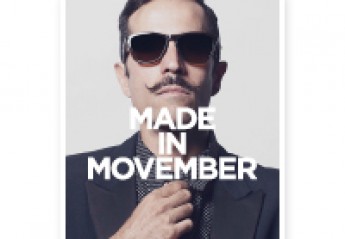Welcome to this series of articles connected to International Men’s Day (November 19) where men reflect on what it means to be male. Here we see Janick being interviewed.
Name: Janick
Place of residence: Wrocław, Poland
Age: 40
Are you glad to be a man? Why (not)?
I hold that what we consider to be a man is the product of social conditioning, and show nothing or little male about the man. I am not clear where the line starts in terms of why I do or think certain things because I am a man. In many ways I don’t do the standard male thing, and I like to be challenging in leaving it open which gender role I am fulfilling. Of course, sex and gender roles (despite what one sees in many application forms) are not the same thing, but still, me as a man is concept less through-through than, say, me as a heavy metal fan or Christian. Those identities are largely chosen, the former not.
Still, social constructions or not, I am defined, by society at least, by how I was formed as a man. For years I saw being male as being a bad thing. I had largely negative connotations with it. Female friends I had and others had negative things to say about men, partly based on concrete experiences that they had had. I did what Robert Bly spoke of (in his book “Iron John“) and identified with the hurt woman, a somewhat sado-masochistic decision of mine. This was not a healthy thing to do. Thankfully I stopped doing this and started to look upon myself more positively.
Men are at the extremes of success, on the one hand they are more likely to be directors, managers and politicians, on the other hand more likely to be homeless, have severe mental illnesses and be in prison. Why do men have such big extremes?
The German feminist Birgit Rommelspacher wrote of how what she calls “male values’, things I understand to mean the values that men are by and large pressured to have (as opposed to being anything they are born with), become the dominant values. These values are hard-work, discipline, efficiency, being tough, not showing weaknesses and being self-sufficient. These values bring some good things, but are a massive burden for men. Some, in this Social Darwinist scheme rise to the top, some sink to the bottom.
To add to this, the gaslighting effect happens to boys. While both boys and girls face the child abuse that is “crying it out” (being left to cry in the belief that children are being manipulative when they cry), boys face talk of “manning up” or “boys don’t cry”. This gender role is done by society, by men and women (witness the myth of “men flu”). Such a manner of raising children discourages them from talking about and admitting to themselves emotions like being sad or worried. As a consequence, they can lack the ability to deal with them. This can turn to self-hatred or “playing out” emotions.
Another issue here is that of solidarity. A female sex seen to be weak results in them receiving help. I have only anecdotal evidence for this, things like when photos in newspapers of parents being overwhelmed with having children showing mothers or the small amount of refuge houses for men. It is said that women are more social, this comes from how they are raised. It stands to reason that men are more likely to be kicked out on the street or not get help.
All over the world, men are more likely than women to commit suicide. Why is this? What do you think can be done to address this?
To add to the above, values that have the consequence that we compete, we are less likely to build bonds of solidarity with people, people who we can fall back upon. These people we fall back upon tend to women, and for those who are heterosexual this means our wives/partners/girlfriends. This is not a situation that is sustainable in the long-run. Men can feel totally overwhelmed and alone.
When did you have your last check-up for prostrate and testicular cancer? Why don’t men tend to look after their health?
I had a check for testicular cancer in about 2000, not a planned one, rather, I went there with a pain in the groin (which turned out to be a muscle sprain) and the doctor offered to check. I’ve never had a prostrate cancer test. I know that this is a big issue for men, but I’ve not looked into having a test.
What male role models do you have?
Difficult to say, really. I was brought up without a father, therefore looking to men as role models doesn’t come naturally to me. I guess Robert Bly is one, a men’s activist. Deffo James Hetfield. He’s different to me, like, in that he was fairly macho, but then various problems he faced (as see in the film “Some kind of monster”) which saw him starting therapy made him face up to himself and the album “St. Anger” sees his lyrics being very honest about himself and his pain. Not that he’s a softy now though. Otherwise, there are men I like, maybe not in their totalities (with the exception of the first one) but for specific things, people like Kenny Dalglish, Steve Harris, Freddie Mercury, and Pope Ffransis (Saint Ffransis as well).
How is it possible to address the problems that men and women face without competition between them?
Let’s look at two (simplified for the ease of understanding) groups:
On the one side one has Men’s Rights Activists (MRA’s), let’s say, a group I’m in in Facebook where nearly everyone appears to be from the US, or some I followed on Twitter for some time, including some women. With many of them activism for men’s rights (I prefer the word issues myself, but they are largely focussed on parental alienation) is tied up with being, as they say in the US, rednecks; reactionary privilege-based anger. I use the word privilege, a current buzz-word, as this seems to be a key issue, in that they don’t like people such as Muslims, People of Colour and LGBTQ.
Well, in the US things seem pretty polarised, but there are somewhat similar traits among those who work for men’s issues in Europe as well (say, a march for men by Christians here in Wrocław in October which wanted to “free Wrocław from the ideology of gender”.) Women are also in this Facebook group, the kind I’ve seen on Twitter being anti-feminist. They are always white women.
Thing is, I share some of MRA concerns, like parental alienation. I don’t share their Feindbild of feminists.
On the other side we have some feminists, let’s call them dogmatic feminists. They make out all men’s issues activists to all be reactionary and try to silence discussions about problems men face (ironically doing the same “shut up about your feelings” behaviour that boys are brought up with). Or they blame all these problems on men (for example, “female-on-male domestic violence happens because of the society where men are dominant and therefore it is up to men to change that society”) instead of raising awareness that women can be perpetrators as well (in the UK, at least). They believe that all men’s problems can be solved by feminism alone.
My solution won’t be liked. It’s right to look at privilege. However, more than the usual male one. One is of looking at an issue which is left out, that of class privilege. Here’s a personal example: I have an underclass background (being brought up via welfare with no paid-worker in the household) and I worked as a volunteer in a project that deals with history. Afterwards I was unemployed for five months, worked again with history in a risky job for five months and was then unemployed for five months again. A woman, born to rich parents did similar work to me as a volunteer. After finishing she started work in a museum that deals with history as a full-time employee. Now, she as a woman is less likely than a man to become the director of that museum. Just not this man. Her class privilege brought her more security and money than me. I’m not blaming her, or myself, just saying that class privilege happens. Just like racism makes it more likely that both of us as white people will be employed as pedagogues.
The admitting that class privilege exists offers enlightenment as to why certain people face certain problems, instead of simply blaming that nasty PC brigade/feminists/gay lobbyists/men in general. My perception is that men who agitate for men’s issues (such as suicide, homelessness, parental alienation) tend to be conservative or liberal (by which I mean, “I’m neither left or right-wing”); therefore they won’t like this solution. Feminists are more likely to be left-wing, I think, but still, videos raising the important topics of the abuse that women face are not shy of anti-immigrant/underclass arguments. Intersectionalism needs a class dimension.
There are other privileges that tend to be left out of discussions. Here’s another personal one: I was brought up without a father. This had the result of making me more open to being a victim of violence (“my daddy’s deader than yours….”) and also less sure about myself as a man. A middle-class or even working-class woman has advantages over me in some contexts, such as with income. If they are feminist, they are more likely than myself to have support for developing their sense of their sex. More likely to have solidarity. At the same time, if they are lesbian, as I am heterosexual I am more likely to have legislation that recognises me (especially here in Poland). As someone without a disability, public transport is not a problem for me (well, as a man carrying a 11-month old boy I am less likely than a woman with the same boy to be offered a seat, but I don’t need assistance to get a pram off a bus). Other issues are that of university education and being cisgender.
This is not to relativise privileges (generally, as a white heterosexual I’m getting by alright in many areas), just that blanket statements that all men have privileges in all cases are not true. This surely opens the door for MRA’s to engage with the issue of privilege. I very much doubt that, however. Being critical of ones own privileges but aware of the privileges of others may open the door for dogmatic feminists.
I find however that most people who are open to the issue of problems that both men and women face are neither group, people who are not pro-male or pro-female. I know plenty women who, unlike myself, reject feminism per se for being, well, dogmatic. In my now four years of doing workshops for young men about being men, I’ve met plenty men who are very much aware of problems women face, but being directionless in how to be a good man, a man who isn’t a softy. Both groups avoid the Puritan confessions that intersectionalism can arouse, or the angry-at-the-modern-world view of some MRA’s.
What’s your message for men for this year’s International Men’s Day?
It’s a bit late now, eh. I guess I’d say, remember next year’s (it’s November 19th each year) and read the increasing number of articles which deal with the subject.
Janick has now finished his participation in Movember, a campaign to raise money for combatting prostrate and testicular cancer as well as, in Poland, male depression. To support him go to this site.

